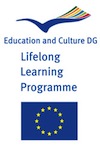Initiatives and practice
Validation of non-formal and informal learning has probably been one of the most debated issues of education and training policies at European level. It is impossible to mention all projects, conferences, initiatives and publications developed during recent years.
EUCEN is one important contributor in the debates, notably at higher education level. In addition to presentations in numerous conferences, two projects managed by EUCEN - Transfine and Refine - proposed important contributions to the development of validation of non formal and informal learning. Transfine was a "Joint action project" funded by DGEAC to set up innovative approaches establishing transversal procedures between different types of training and learning programmes, at different level, offering several types of partnership. The main objective was to explore ways to build a system of transfer and accumulation of learning credits for lifelong learning, integrating formal, non formal and informal learning. As a result, Transfine proposed a European methodological framework for the recognition of non formal and informal learning and demonstrated that many existing tools at European or national level could be adapted for this purpose.
Refine, was a follow up to Transfine. The aim was to test the tools for a European methodological framework for the recognition of non-formal and informal learning. The main result was a proposal for ‘Validpass', designed to be a framework portfolio of flexible tools to facilitate and promote the recognition and validation of non-formal and informal learning. It was proposed as a complementary element of EUROPASS, attempting to overcome some of the limits of the current documents included in EUROPASS for this purpose, and particularly to take into account volunteer activities.
A third strategic project, OBSERVAL, finished in October 2010. The aim of this project, which involved 24 country teams, was to provide a complementary approach to the one developed by ECOTEC. The Leonardo network Project created a European Observatory on validation of non formal and informal practices and results in European countries. The objectives were to collect and update data on regulations, arrangements, standards and references, methods and tools, results and statistics, to review national debates and discussions, links with other European initiatives (NQF-EQF, learning outcomes, adult education action plan,...), to identify good practice (case studies), to provide an nannotated bibliography and literature review (researches, surveys, reports,...) and to present these documents on a website in a common format that will allow both comparison and articulation between practice in different countries, sectors and contexts.
A follow up project, OBSERVAL-Net, started in December 2011. OBSERVAL-Net has developed a new observatory that collects and enhances the data from OBSERVAL, focuses on 3 main areas of VNIL (Bottom Up, the VNIL Profession and Work-Based Competence development and recognition), allows users to upload new reports, case studies, etc and gives them the opportunity to exchange with other VNIL professionals.
Other projects: Euroguideval


.png)
